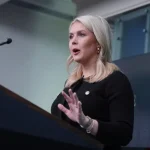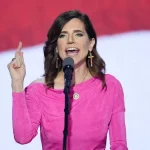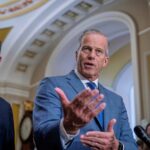
How do you stop a state-subsidized national propaganda radio outlet and/or tote-bag distributor from tweeting in one glorious self-own? Just ask Elon Musk.
For those of you who follow NPR’s Twitter account — and I understand there’s probably not a lot of overlap in audiences here, but maybe there are a few who really like their agitprop spoken to them very softly and in-between occasional classical music breaks — you may have noticed they’ve been silent on the social media platform since last Tuesday.
That’s when all heck broke loose — and just before Twitter labeled NPR “U.S. state-affiliated media.”
According to journalism non-profit Nieman Lab, results from “state-affiliated media” sources — like Russia’s RT and China’s Xinhua — are downranked in Twitter’s algorithm. The label was officially applied on Thursday, NPR confirmed.
“Until Wednesday, Twitter’s own policy on the ‘state-affiliated’ label specifically noted that ‘state-financed media organizations with editorial independence, like the BBC in the UK or NPR in the United States, are not defined as state-affiliated media for the purposes of this policy.’ Twitter removed the reference to NPR after giving its account the ‘state-affiliated’ label,” Nieman Lab noted.
The BBC’s status has also been changed — but we’ll get to that later.
So, NPR showed all of us: They were taking their ball and going home!
“We stopped tweeting from the main @NPR account after they attached that false label to it because each tweet we publish would carry it,” NPR spokeswoman Isabel Lara said.
“We have paused tweeting from that account until we hear back from Twitter on this. We’ve continued tweeting from other accounts that aren’t mislabeled.”
Conservative Twitter’s response: “Winning!”
Winning – no more tweets from Democrat Propaganda NPR. pic.twitter.com/6WolJTpdph
— Catturd ™ (@catturd2) April 10, 2023
Elons twitter has become so powerful that he’s making regime propagandists boycott themselves. https://t.co/lPhSjapjFa
— Cernovich (@Cernovich) April 10, 2023
Now, there are several things of note here. The first is that they did this to draw attention to themselves while they were working things out with Elon Musk himself.
From a Thursday NPR report: “In one email exchange, Musk appeared to be unclear about the difference between public media and state-controlled media when he decided to affix a state-affiliated media label on NPR’s account.”
“‘Well, then we should fix it,’ Musk wrote in an email on Wednesday to this reporter, when told that government support represents about 1 percent of NPR’s finances.
“Musk added: ‘What’s the breakdown of NPR annual funding?’
“In response, NPR provided Musk publicly available documentation of the network’s finances showing that nearly 40 percent of its funding comes from corporate sponsorships and 31 percent from fees for programming paid by local public radio stations.”
Now, this is somewhat deceptive in how much government is paying for NPR, inasmuch as those fees from local public radio stations are often paid by public entities, be they federal, state or local.
The point is that while much of it comes from subscriber drives that hand out those silly tote bags (or did once upon a time) or private grants, your money is keeping NPR alive — and when the House voted to cut its funding in 2011 after a series political bias scandals (at NPR? I’m shocked!), boy, did they raise a stink, according to Reuters.
As the wire service noted at the time, while only a small portion of the national organization’s budget comes from the federal government, “its member stations are heavily reliant on funding from federal and state governments.”
“The bill is a direct effort to weaken public radio that would ultimately choke local stations’ ability to serve their audiences,” NPR said in a statement in response to the move. “Many small-budget stations would be placed in a serious financial bind.”
So your tax dollars are a pittance to NPR. According to their emails with Musk, they spit on that money. But take it away, and you’re choking them!
And by the way, nobody really would have noticed this unless NPR whined and stomped its feet like a little child. Which led to … little outrage on the left and joy on the right. Is this how to shut up legacy media on the most news-heavy social platform there is? Why didn’t we think of this sooner?
Alas, the sound of silence may be short-lived. As the New York Post noted, sometime on Monday the tag was updated to note that NPR was “Government-funded media,” not “U.S. state-affiliated media.” This isn’t a distinction without a difference. It’s the same tag that appears on the BBC’s account, which is funded in large part by a government-mandated license fee on TVs in the U.K.
Do you approve of Elon Musk’s work at Twitter?
Yes: 100% (1 Votes)
No: 0% (0 Votes)
The reason this could make a difference is that it likely wouldn’t lead to the same downranking that “state-affiliated media” tags do. In an email to the BBC, Musk wrote the tags were because Twitter is “aiming for maximum transparency and accuracy. Linking to ownership and source of funds probably makes sense.”
However, he said that while “I do think media organizations should be self-aware and not falsely claim the complete absence of bias,” he added he “should note that I follow BBC News on Twitter, because I think it is among the least biased.” It’s unlikely, then, that the Beeb is going to see the same kind of downranking as RT, say.
Not that Britishers are taking this any better than the NPR crowd did, mind you:
Let’s check in on the BBC: pic.twitter.com/tTt91V7ASj
— Journalists Posting Their Ls (@JournosPostLs) April 9, 2023
Condensed version: “Twitter is now pointing out the BBC is funded by the government! This is an outrage! Quick, let’s all throw a tantrum to call attention to this in a manner which could in no way backfire!”
As for NPR, they didn’t comment to the Post, nor have they updated last week’s story on their website dealing with the “state-affiliated media” tag, nor have they tweeted again as of Tuesday morning or penned a new story dealing with the change in status. Pardon the pun, but there was full radio silence on the matter.
However, the fact our tote-bag loving radio overlords aren’t throwing the same screaming fit about the new tag that the petulant Britons are indicates at least some kind of detente is being reached between Musk and NPR, and this will likely come to some sort of brisk resolution. Whether this is seen as Musk backing down or finding a neater, more specific way to transparently convey whether a news organization is funded by government tax dollars or directly controlled by the government.
Imagine, though: All you have to do to shut up a government-funded fake news organization heavily reliant on the patronage of one political party on a social media platform is for that platform to tell them exactly what they are. Thanks for the lesson, Elon, at least while it lasted.






